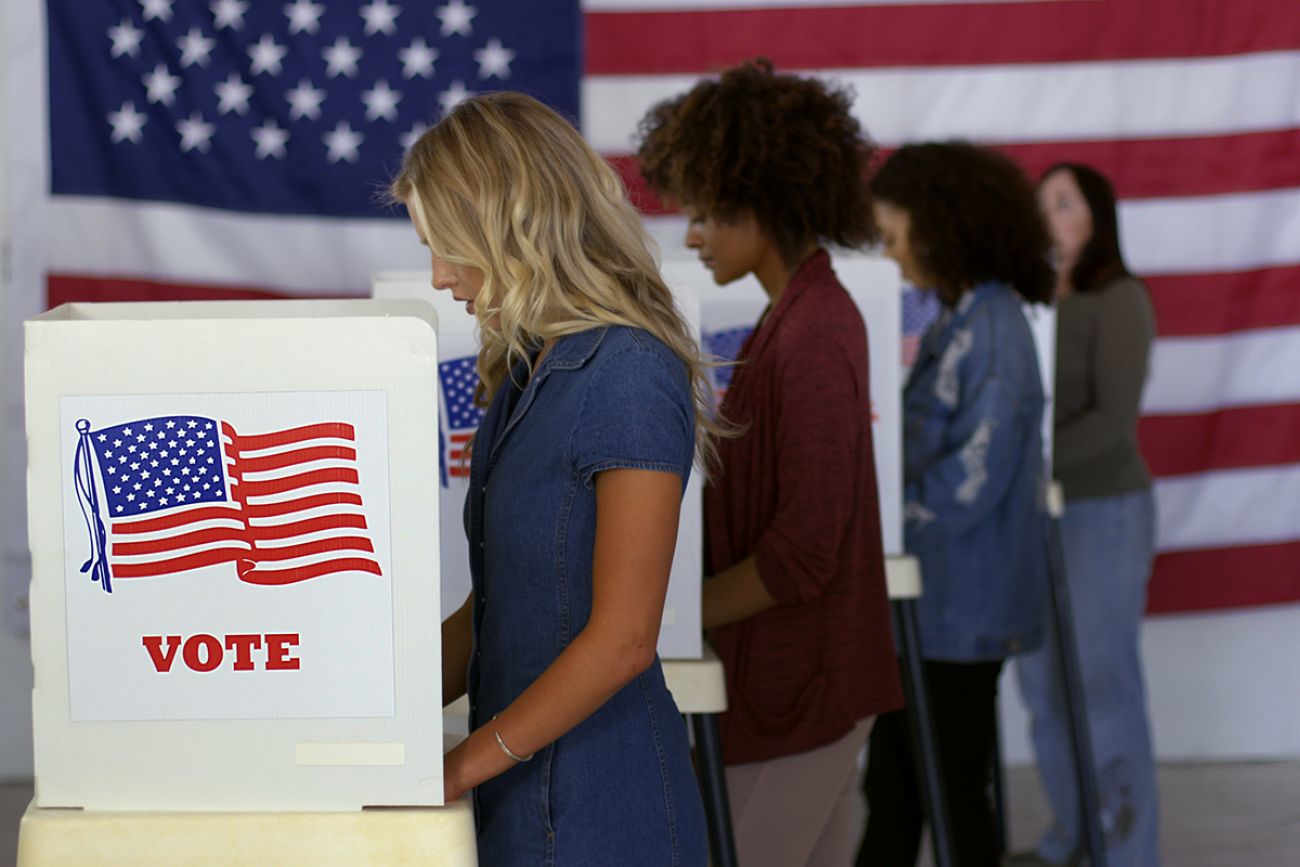$8 million awarded for Michigan election security amid funding disputes

LANSING—Local and county clerks have access to $8 million to improve voter security but their requests for additional legislative support ahead of the 2022 election remain unanswered.
The Michigan Bureau of Elections on Tuesday announced federal funding will be available to local and county election clerks to buy new locks and cameras, upgrade polling software and other security-related improvements before the November elections.
The bureau is providing the money through the Help America Vote Act, which Congress passed in 2002 to provide clerks with additional funding. The announcement came the same day a state court dismissed a Republican-backed lawsuit seeking to stop private companies from funding 450 Michigan clerks.
Related:
- Michigan GOP passes more bills to tighten election rules. Expect more vetoes.
- 2022 Michigan petition drives tracker: What to know about election proposals
- Michigan educators to campaign against Betsy DeVos-backed petition
Ongoing disputes over private and public funding of elections come at time when there are sharp, partisan differences over the security of Michigan’s election laws following the 2020 presidential election when clerks were strained by the volume of absentee ballots while facing scrutiny amid Donald Trump’s unfounded allegations of voter fraud.
The $8 million was made available in response to a letter sent in February by the associations representing the state’s municipal and county clerks asking for additional funding ahead of the 2022 election. The groups also asked legislators to pass procedural changes.
Delta Township Clerk Mary Clark, president of the Michigan Association of Municipal Clerks, said the federal grant allots $1,500 per precinct.
“That provides clerks a funding stream to do some things that they likely cannot do without it,” Clark told Bridge Michigan on Tuesday. “I’m going to get a new lock system put on the office doors. It’s very timely and well thought out.”
BOE Director Jonathan Brater said on Tuesday at a House Election and Ethics Committee hearing the grant funding is a one-time allocation based on temporary dollars.
“On an ongoing basis, a more reliable state funding stream would help ensure that in future years, those security practices are able to continue,” Brater said.
Local election officials have complained of needing more resources to efficiently and accurately handle results. In 2020, many clerk’s offices in Michigan and elsewhere accepted grants from a philanthropy associated with Facebook CEO Mark Zuckerberg to help with election costs.
A state court on Tuesday dismissed a lawsuit over private funding awarded to more than 450 Michigan clerks during the 2020 election, rejecting GOP claims that the election grants dispensed during the pandemic were aimed at Democratic cities to unfairly boost liberal turnout.
The claims are "moot" because the privately funded grants, from the Center for Tech and Civic Life, the nonprofit funded by Zuckerberg, "were available to all jurisdictions that sought them," Michigan Court of Claims Judge Thomas Cameron wrote in his 10-page opinion.
The Michigan House and Senate last year each passed legislation to bar private grant funding for future elections, as several other states have done. Democratic Gov. Gretchen Whitmer vetoed those bills.
Michigan Republicans are now attempting to go around her through the Secure MI Vote petition drive, which among other changes would prohibit donations to help fund elections.
Michigan Attorney General Dana Nessel and Secretary of State Jocelyn Benson, both Democrats, on Tuesday celebrated the dismissal of the private grant lawsuit, calling it a failed attempt to undermine confidence in the election process.
“It was meritless and misguided and the court rightly noted the ability for nonpartisan nonprofit organizations to work directly with local communities to ensure they have the support they need to protect and count every valid vote," Benson said in a statement. "It further underscores the need for the legislature and federal government to provide sustained funding for elections, so that clerks across the state and political spectrum have consistent and sufficient funds to run accessible and secure elections.”
Additional private and public grant funding is helpful, but Ingham County Clerk Barb Byrum told Bridge it “does absolutely nothing to solve the issues we have been raising for decades.”
County clerks will receive $150 per precinct within their county through the federal grant announced Tuesday. Byrum said she intends to purchase software updates that would keep unofficial voting results available online on election night.
“It is very unfortunate that the requests that election administrators have made in regard to election reform have not been acted upon,” Byrum said.
Clerks have asked legislators to put aside partisan differences and pass an array of election reforms such as more time to pre-process absentee ballots, additional training and reasonable access for election challengers, and more time and funding to conduct post-election audits and remove dead voters from the qualified voting file.
In 2020, clerks were given eight additional hours before election day to prepare absentee ballots for counting. Brater, the state election director, said clerks’ need for additional time varied based on the jurisdiction’s population and specific election procedures.
He said he believes clerks need more than eight hours to reap the benefits of pre-processing absentee ballots.
“Although clerks appreciated the time, it was something that was introduced relatively close to the election so there wasn’t a lot of time to build it into their planning,” Brater said.
Bipartisanship regarding election reform has been absent since the November 2020 election. Democrats have introduced a round of bills that allow absentee ballots to be processed as much as seven days before election day, would require at least one ballot dropbox per 20,000 people in a municipality and more.
Seventeen states allow clerks to process absentee ballots before election day. Another 16 states, including Michigan, allow clerks to process ballots before the polls close on election day. And 17 states don’t allow clerks to process ballots until polls close on election day.
Republicans have been introducing legislation to tighten voter laws, including requiring the Secretary of State to remove voters who don’t respond to a letter notifying them they need to update their birthdate or who haven’t voted since 2000 from the state’s Qualified Voter File. But like other legislation passed by Republicans over election rules, vetoes for those measures are likely from Whitmer.
See what new members are saying about why they donated to Bridge Michigan:
- “In order for this information to be accurate and unbiased it must be underwritten by its readers, not by special interests.” - Larry S.
- “Not many other media sources report on the topics Bridge does.” - Susan B.
- “Your journalism is outstanding and rare these days.” - Mark S.
If you want to ensure the future of nonpartisan, nonprofit Michigan journalism, please become a member today. You, too, will be asked why you donated and maybe we'll feature your quote next time!




